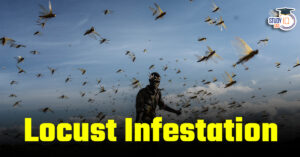Context: Cephalopods’ unique intelligence and behaviours place them at the frontier of animal welfare considerations. Their advanced cognitive skills and adaptability challenge traditional ethical frameworks, highlighting the need for regulations similar to those for vertebrates.
About Cephalopods
Cephalopods are marine invertebrates belonging to the class Cephalopoda within the phylum Mollusca. (E.g. squids, octopuses, cuttlefish and nautiluses)
Characteristics
- Body Structure: Soft Bodies equipped with suction cups or hooks for capturing prey and sensing the environment.
- Nervous System and Intelligence:
- Highly developed nervous system and large brains relative to body size.
- Cephalopods, including octopuses, cuttlefish and squid exhibit intelligence comparable to vertebrates.
- This intelligence is evidenced by their advanced cognitive abilities, learning, memory, and problem-solving skills.
- Octopus vulgaris has about 500 million neurons, similar to a starling, rabbit, or turkey.
- Over 300 million neurons are distributed in their arms (mini-brains), enabling complex arm movements and sensory processing.
Locomotion
- Jet propulsion: Expel water forcefully from their mantle cavity through a siphon to move rapidly.
Camouflage and Defense
- Chromatophores: Specialized pigment cells allow rapid colour change for communication, camouflage, and predator deterrence.
- Ink Sac: Ejects ink to create a smoke-screen-like distraction for predators.
Biological Inspiration
- Jet propulsion mechanics inspire underwater vehicle designs.
- Camouflage abilities studied for advanced materials and military applications.


 Deserts and Open Ecosystems, Importance ...
Deserts and Open Ecosystems, Importance ...
 Locust Infestation: Causes, Impact, and ...
Locust Infestation: Causes, Impact, and ...
 Scheme for Critically Endangered Species
Scheme for Critically Endangered Species





















